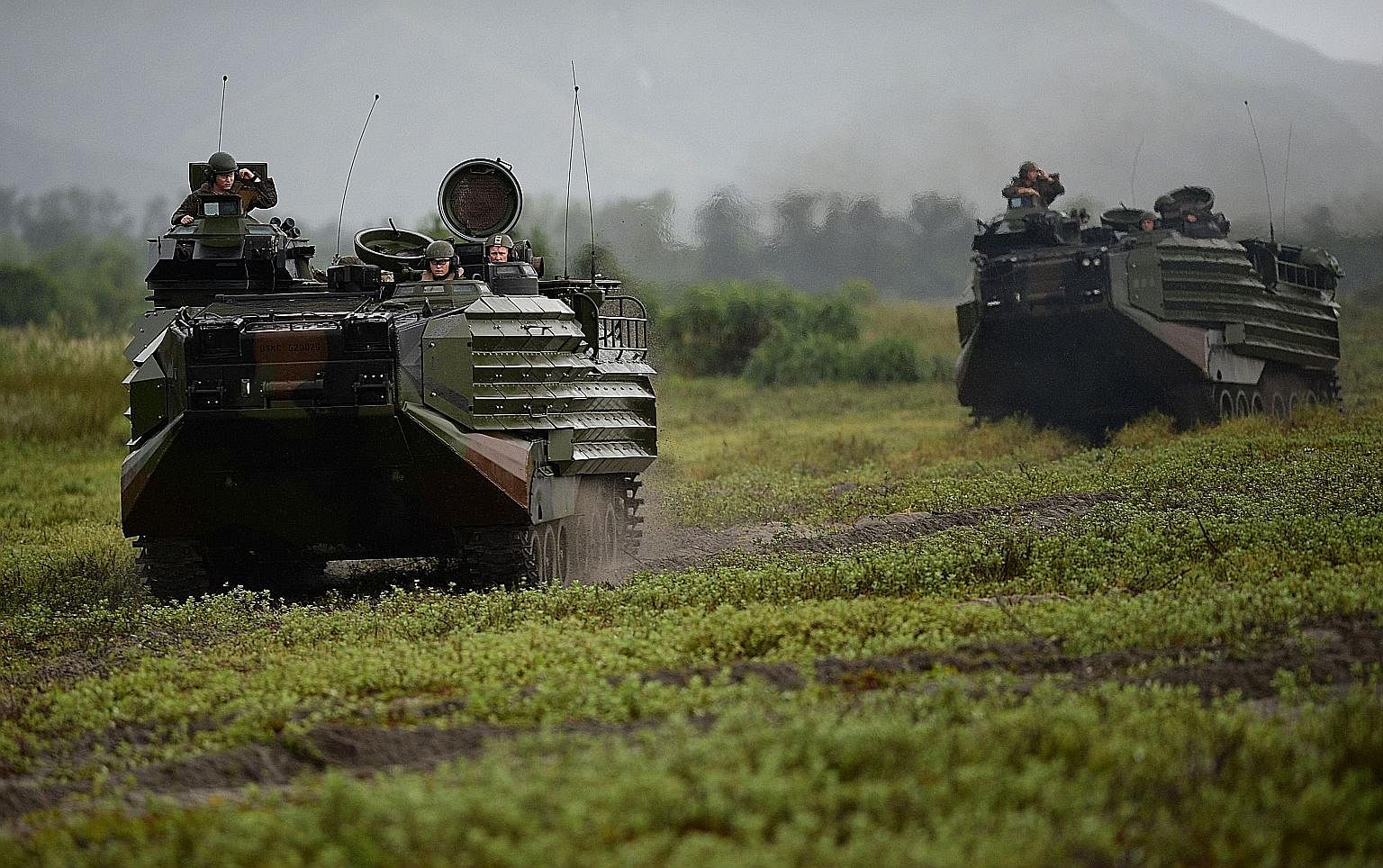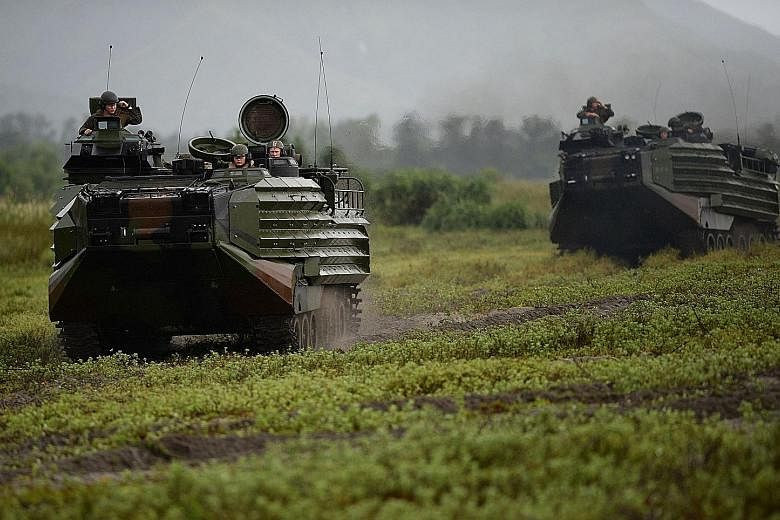Many nice things have been said in this region about outgoing US President Barack Obama's legacy in South-east Asia. He certainly paid more attention to Asean and South-east Asia than possibly any other US president in the post-Cold War era.
This is shown by the record of his attendance at Asean-related summits and his visits to individual South-east Asian states.
Many top officials and leaders of South-east Asian countries relished this - and justifiably so because Asean needs the benign attention and understanding, if not support, of the major powers in what it seeks to achieve, perhaps most of all from the world's most powerful country, the United States.
However, the Obama administration's diplomatic attention and its undoubted soft power and significant people-to-people and cultural engagements cannot by themselves sustain America's longer-term strategic and economic interests in this region in the face of powerful competition from the rising regional superpower, China.
Diplomatic attention can be fleeting, varying from administration to administration, from a country which is a vibrant democracy with regular changes in top leadership every four or eight years.

A much better measure would be how well the Obama administration fared on the US rebalance to Asia which has these vital economic and strategic components and which the President himself first announced in 2011.
The answer is not so well.
On the economic front, Mr Obama failed to deliver on the Trans-Pacific Partnership (TPP) which, if implemented, would have further entrenched American economic interests in Asia and strengthened its hand in writing the economic rules for the region.
Those in the know say he should have focused much earlier on the TPP rather than leaving it largely to his second term.
To countries that had signed up for the TPP, the failure to achieve the trade pact has been a huge disappointment and has affected American credibility in the region. President-elect Donald Trump has said that he would discard the TPP, and it remains an open question whether some of it will eventually survive in some form or not.
Mr Obama did much better on the military side of the rebalance. He bolstered US military power in East Asia and the Western Pacific, and strengthened alliances and military cooperation with Japan and Australia and the strategic partnership with India. He made the decision to deploy the Terminal High Altitude Area Defence anti-ballistic missile system in South Korea despite strong objections from China. By most measures, the US remains the strongest military power in East Asia/Western Pacific.
However, despite this strength, under Mr Obama's watch, China made major advances in the South China Sea because of the President's unwillingness to use US power to check it.
Knowing this, China was not only able to complete much of its artificial island-building and begin their militarisation, but also to vehemently reject the ruling of the Arbitral Tribunal under the United Nations Convention on the Law of the Sea on the Philippines versus China case, which dismissed most of China's claims as invalid.
Further, by persisting with its pressure on Asean and South-east Asian countries to desist from supporting the tribunal ruling, China may be able to convert the South China Sea region - through which more than US$5 trillion (S$7.1 trillion) worth of international trade passes each year - into a de facto sphere of influence in which China's edict rather than international law prevails. The net result is a sense of a shifting power balance in South-east Asia and a feeling of a China on the march forward as the US has looked weak and in disarray, whatever the objective economic and military facts of the region may be.
A good man and an idealist, Mr Obama tried to keep America out of foreign wars after the excesses of the George W. Bush administration, in particular, the disastrous invasion of Iraq. So, on the broader global canvas, history may well judge him more positively for this.
Also, commitments to North-east Asia - to Japan, South Korea and Taiwan - are seen as more important to the US than South-east Asia. But is it possible to separate the two sub-regions of East Asia strategically? After all, the issue in the South China Sea is not who controls a few reefs and rocks but ultimately who controls the Western Pacific of which the South China Sea is one part. China almost certainly sees it that way.
A firm believer in settling disputes by negotiation and according to international rules, Mr Obama had to deal with protagonists in different parts of the world who were prepared to use any means to achieve their political and strategic ends.
There will be a new administration in Washington when Mr Trump takes over on Friday, and South-east Asia waits with bated breath to see what it will try to do or undo.
• Daljit Singh is a senior research fellow and coordinator of the Regional Strategic and Political Studies Programme at the ISEAS - Yusof Ishak Institute.

